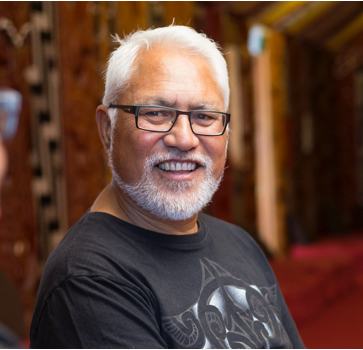Methods of managing Māori land: Trusts, incorporations and reservations
Māori incorporations
Te Ture Whenua Māori Act 1993, Part 13 Māori Incorporations Constitutions Regulations 1994
Māori incorporations are a way for multiple owners of Māori freehold land to manage their land collectively, usually for commercial purposes. The structure of a Māori incorporation is similar to a company – it has shareholders and, because it’s an incorporated body, it has its own legal identity, separate from all the individual owners.
Establishing a Māori incorporation requires an order from the Māori Land Court. Ongoing management is dealt with by a committee of management. Each Māori incorporation has a constitution, the terms of which are set by regulations.
Setting up a Māori incorporation
How can we set up a Māori incorporation?
Te Ture Whenua Māori Act 1993, s 247
You’ll need to apply to the Māori Land Court to hold an “assembled owners” meeting under the Act, where a resolution to form an incorporation can be discussed and voted on. For information about these meetings, see: “Other forms of decision-making and representation for multiple owners”.
Alternatively, you can hold your own meeting of landowners to get written and witnessed consent to form the incorporation.
You’ll then need to apply to the court for an incorporation order and must include the necessary supporting information and documents.
It’s important that the landowners are given enough notice of proposals.
What information is needed to support an application for an incorporation order?
Māori Land Court Rules 2011, rule 12.10
You’ll need to include the following with your application:
- a full description of the land in question
- a valuation of each of the areas of land to be incorporated and any improvements to the land
- details of any other assets that are to be vested in (legally owned by) the incorporation, with an up-to-date valuation of those assets by a properly qualified valuer
- the full names and addresses of the people who are to be the initial shareholders
- if you don’t have an “assembled owners” resolution, then the full names and shareholdings of the owners who have consented to the order, and
- the full names and addresses of any people proposed to be the interim committee of management.
Ongoing management of Māori incorporations
The incorporation’s constitution
Te Ture Whenua Māori Act 1993, Part 13 Māori Incorporations Constitutions Regulations 1994, Schedule 1
The Māori Incorporations Constitutions Regulations 1994 set out a constitution that governs each Māori incorporation, which shareholders can later change by special resolution. The constitution deals with issues such as:
- general meetings of shareholders
- voting
- electing the committee of management, and
- shareholding in the incorporation.
Can the constitution be changed?
Te Ture Whenua Māori Act 1993, s 268(3)
Yes, by a special resolution passed by the shareholders.
The committee of management
Te Ture Whenua Māori Act 1993, ss 269, 274B, 274C Māori Incorporations Constitutions Regulations 1994, Schedule 1, clauses 22(1), 23(3)
When it establishes a Māori incorporation, the Māori Land Court appoints a group of at least three people to manage the incorporation through its initial period – called the “interim committee of management”.
This interim committee continues until the incorporation’s first annual general meeting, which must be held within six months after the incorporation’s financial year ends. At this first AGM, the shareholders must elect a new committee of management. However, members of the interim committee can stand for election to the new committee of management.
You don’t have to be a shareholder to be appointed to the committee.
Members of the committee can be there for up to three years. A committee member who is due to retire is automatically nominated for re-election unless that person declines it at least seven clear days before the meeting.
Incorporations must keep records of the committee members’ property interests, and the committee must make annual declarations of interests and dealings.
Challenging an election or the conduct of the committee
Te Ture Whenua Māori Act 1993, s 269(4) and (6)
As a shareholder in the incorporation you can apply to the Māori Land Court to remove any committee member who you think is not capable of performing their duties, or otherwise unsuitable (see: “Can trustees be removed?”).
If you think an election for the committee of management wasn’t valid, you can also apply to the court for it to investigate this and then either confirm the election or declare it invalid.
Succession to shares in Māori incorporations
How shares are transferred when an owner has died
Te Ture Whenua Māori Act 1993, s 264 Māori Incorporations Constitution Regulations 1994, Schedule 1, clauses 28, 31, Schedule 2 form 5
Māori incorporations manage their own successions (the transfer of ownership after a landowner-shareholder has died), rather than this having to be dealt with by the Māori Land Court. If a shareholder in an incorporation has died, the executor for the deceased person’s estate (property) can apply directly to the incorporation for the deceased’s shares to be transferred to the people entitled to them (the “successors”).
For more information about succession to Māori land, see: “Succession: Transfer of ownership when an owner dies”.
How do I find out if I’ve become an owner in a Māori incorporation?
If a landowner-shareholder in an incorporation has died and the Māori Land Court has made a Succession Order, the name of the incorporation will be on the order. You should show the Succession Order to the incorporation so they can update their records.
Ownership interests in incorporations are often missed in succession if people aren’t aware they exist. If you know the area you have interests in, the local Māori Land Court office will be able to give you the names of the incorporations you may have shares in as a landowner.

